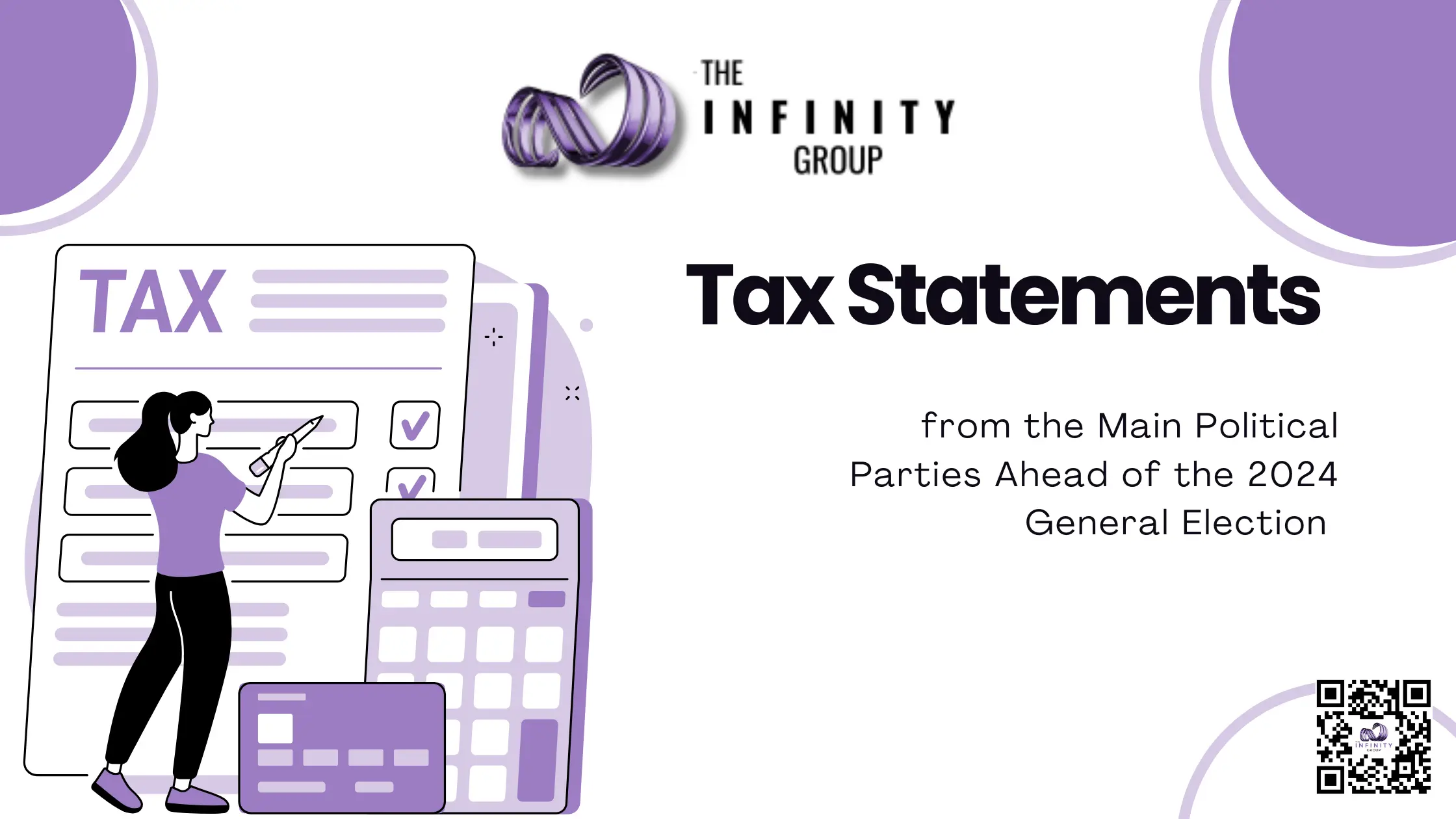With the General Election announced for 4 July 2024, tax policy has become a central topic of discussion among the main political parties in the UK. The statements and commitments made by these parties provide crucial insights into how they plan to handle key tax areas, including income tax, National Insurance, VAT, and business taxes. Here’s a closer look at what the major parties have promised so far.
Income Tax and National Insurance
Conservatives:
- The Chancellor, Jeremy Hunt, has pledged that a future Conservative Government will not increase any rate of income tax or National Insurance for the duration of the next Parliament.
- Income tax thresholds will remain frozen until 2028, but this freeze will not extend beyond that point.
- A ‘triple lock plus’ policy has been proposed, ensuring the personal allowance for pensioners increases by the same percentage as the state pension.
- The Conservatives aim to abolish National Insurance in the long term to reduce the distortion between different types of income.
Labour:
- Labour has also committed not to raise income tax or National Insurance rates.
- The freeze on income tax thresholds will stay in place until 2028.
- Labour has been cautious about promising tax cuts without clear funding, as emphasised by the Shadow Chancellor, Rachel Reeves.
Liberal Democrats:
- Munira Wilson has stated that the Liberal Democrats would not seek to raise income tax or National Insurance rates.
VAT
Labour:
- Labour plans to end the VAT and business rate exemption for private schools.
- The party has committed not to raise the overall VAT rate.
Conservatives:
- The Conservatives have promised not to increase the main rate of VAT during the next Parliament.
Business Taxes
Labour:
- Labour will cap the corporation tax rate at 25% for the duration of the next Parliament.
- They will retain current reliefs such as full-expensing, R&D regime, and the annual investment allowance.
- Labour plans to publish a roadmap for business taxation, outlining their long-term plans.
Conservatives:
- Jeremy Hunt has indicated that boosting growth through business tax policies will be a priority.
- Specific details on these policies are yet to be provided.
Liberal Democrats:
- The party plans to triple the Digital Services Tax for in-scope companies and introduce a new 4% tax on share buybacks of FTSE 100 companies.
- They also aim to reverse the cut in the Bank Surcharge from 8% to 3%.
Other Tax Statements
Conservatives:
- Jeremy Hunt has expressed a desire to cut inheritance tax and described it as “profoundly anti-Conservative.”
- The party does not plan to increase Capital Gains Tax, aiming to encourage earnings and savings.
- Stamp Duty Land Tax has been criticised by Hunt as a “very distorting” tax, with hints at possible reductions rather than increases.
Labour:
- Rachel Reeves has committed to not holding a fiscal event without an independent forecast from the Office of Budget Responsibility, suggesting a Budget could come as early as mid-September if Labour wins.
As the election approaches, more detailed manifestos will be released, providing further clarity on these tax positions. For businesses and individuals alike, staying informed about these developments is crucial for planning and compliance.
For updates on CIS payroll and compliance, follow The Infinity Group. We provide expert CIS payroll outsourcing services to ensure your business remains compliant and avoids the risks associated with subcontractor misclassification.

